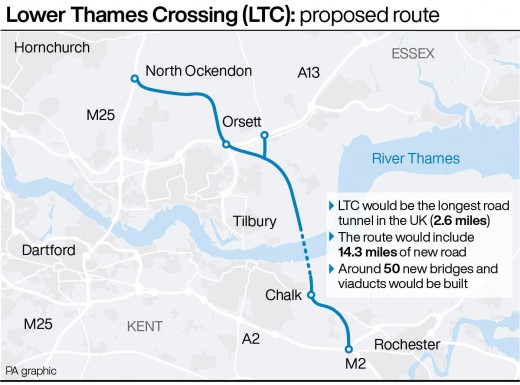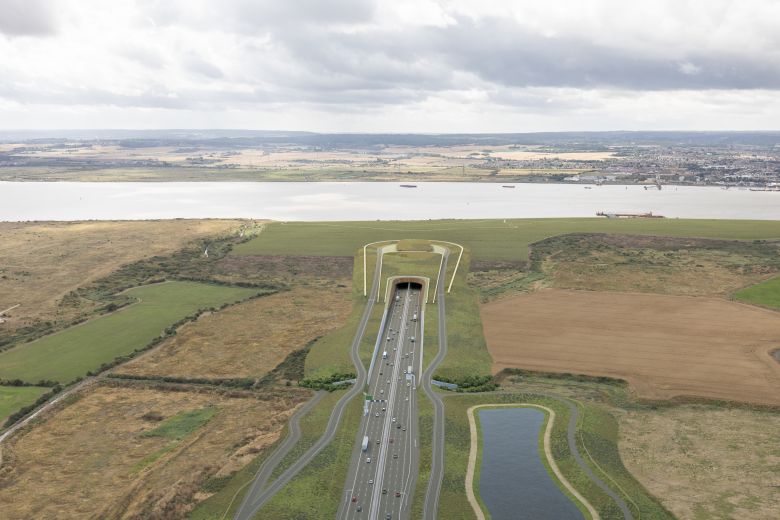Campaigners have branded Highways England’s Lower Thames Crossing (LTC) a ‘mockery’ of the Prime Minister’s environmental promises.
Plans include a 2.6-mile tunnel as part of a route that connects to the M2 near Rochester in Kent and the M25 in Essex between North and South Ockendon.
Construction of the UK’s biggest road project since the M25 will emit around two million tonnes of carbon dioxide, while traffic on the road would generate a further 3.2 million tonnes over 60 years.

Environmental campaigners have raised concerns about the figures that emerged last month after a Freedom of Information request from the BBC.
Chris Todd from the Transport Action Network said: “If the government is serious about tackling climate change, it can’t keep ignoring the emissions roads are causing.”
Last week Boris Johnson announced an “ambitious” target to cut the UK’s emissions by at least 68% by 2030, as part of global efforts to curb climate change.
The announcement came a few weeks after he unveiled his 10-point green plan to cut emissions, which included the move to bring forward the ban of sales of petrol and diesel cars to 2030.
Highways England (HE) insisted that minimising the impact on the environment is a ‘key priority’.
A spokesperson said: “As we’ve developed our plans, we’ve been able to cut the amount of carbon expected from construction by roughly a third, by optimising the design, refining how we plan to build the road and what materials we would use.
“But we will not stop there, and as our new delivery partners come on board, we’re setting high expectations and continually working with them to drive our footprint down even further.”
The Lower Thames Crossing would include:
- 14.3 miles of new road
- the UK’s longest road tunnel, at 2.6-miles
- around 50 new bridges and viaducts
Intended to relieve congestion at the Dartford Crossing, the LTC could almost double road capacity across the Thames to the east of London.
HE predicts that the road will bring billions of pounds worth of economic benefits, including thousands of new jobs to the area.
Current estimates suggest the project will cost up to £8.2bn, 54% more than the £5.3bn originally projected. In other words, £573.5m per mile, compared to £307m per mile for the controversial HS2 line.
- The Dartford Crossing charge: what, how and why you pay it
- Congestion charge: a simple guide
- A guide to UK toll roads and bridges
- SUVs named as second biggest cause of global emissions rise
Laura Blake, chairman of the Thames Action Crossing Group (TCAG) said: “Nearly £573.5m per mile for LTC is an extremely large amount of taxpayers' money, especially considering that it won't solve the problems we all suffer with due to the Dartford Crossing.”
Ms Blake highlighted that there is only a single lane road between the Dartford Crossing and LTC.
“Imagine the chaos, congestion and pollution that would create,” she said.1
A planning bid for the crossing was withdrawn in November following concerns about the public consultation conducted by the Highways Agency.

RAC sale – up to 33% off*
• Roadside cover from £5.29 a month†
• We get to most breakdowns in 60 mins or less
• Our patrols fix 4/5 breakdowns on the spot












